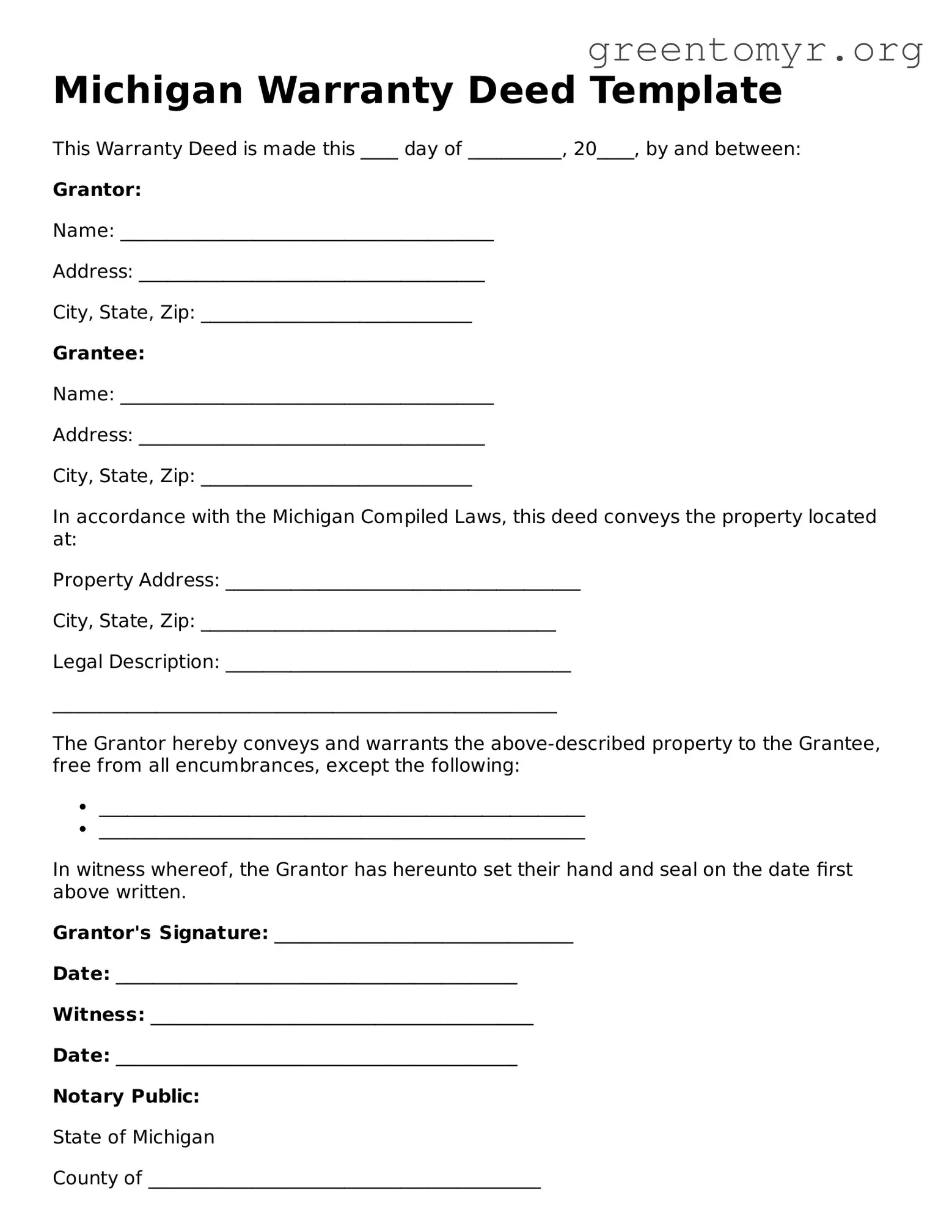Michigan Warranty Deed Template
This Warranty Deed is made this ____ day of __________, 20____, by and between:
Grantor:
Name: ________________________________________
Address: _____________________________________
City, State, Zip: _____________________________
Grantee:
Name: ________________________________________
Address: _____________________________________
City, State, Zip: _____________________________
In accordance with the Michigan Compiled Laws, this deed conveys the property located at:
Property Address: ______________________________________
City, State, Zip: ______________________________________
Legal Description: _____________________________________
______________________________________________________
The Grantor hereby conveys and warrants the above-described property to the Grantee, free from all encumbrances, except the following:
- ____________________________________________________
- ____________________________________________________
In witness whereof, the Grantor has hereunto set their hand and seal on the date first above written.
Grantor's Signature: ________________________________
Date: ___________________________________________
Witness: _________________________________________
Date: ___________________________________________
Notary Public:
State of Michigan
County of __________________________________________
Subscribed and sworn to before me this ____ day of __________, 20____.
Notary's Signature: ________________________________
My Commission Expires: ___________________________
